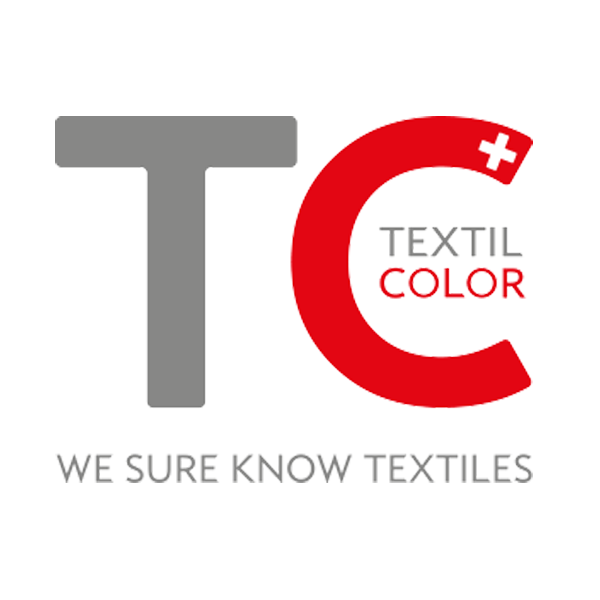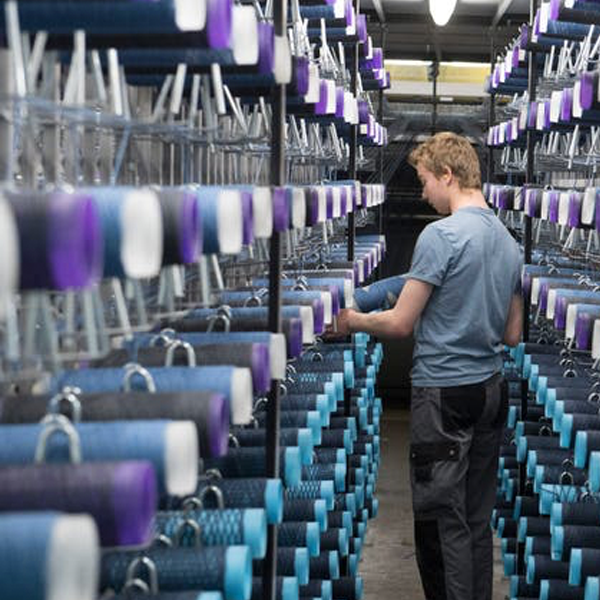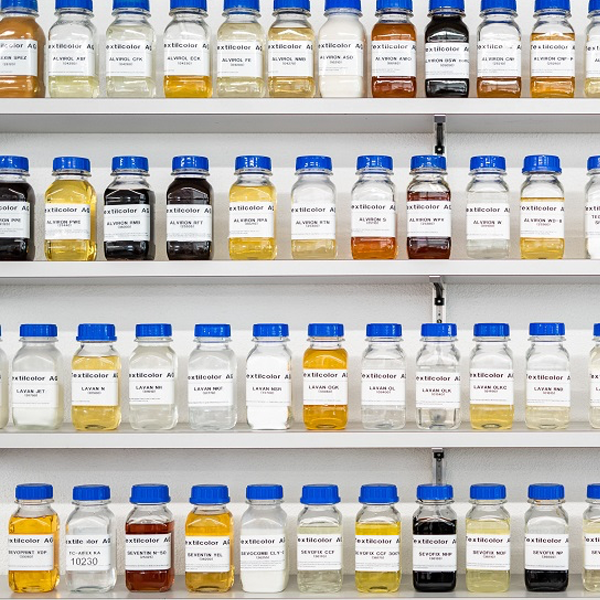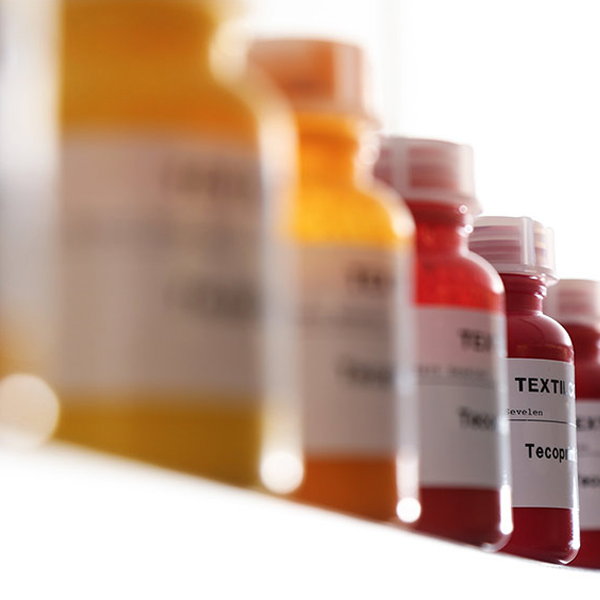Case Study
Textilcolor making the textiles industry more sustainable
Sevelen SG/Bäch SZ – Textilcolor offers a wide range of specialist chemicals for the textiles industry. In so doing, the company focuses on the circular economy and develops biodegradable products.
For several years already, Textilcolor has been committed to developing environmentally friendly and safe textile auxiliary agents. The company has worked closely with EPEA Switzerland, the accredited expert for Cradle-to-Cradle Certified and Material Health Certified certifications based in Bäch in canton of Schwyz, to develop such products. Textilcolor’s efforts have been rewarded in the form of a Material Health Certificate GOLD level of the Cradle to Cradle Certified certification for the company’s overall concept.
The approach pursued by Textilcolor is particularly important for the textiles industry, as this sector still contributes significantly to environmental pollution. With its products, however, Textilcolor enables the integration of safe chemicals into the global textile value chain. In addition to textile auxiliary agents, the company also offers dyes and printing inks that have been awarded the Material Health Certified certificate. In this way, Textilcolor is driving change within the textiles industry as a whole.
An example of one such product is the fabric softener Softycon. Such products contain tiny particles known as microplastics. However, at Textilcolor, a complex process is followed to remove these particles from Softycon. The result is a safe and sustainable product that ensures textiles remain very soft and silky. However, the ability to sew textiles treated in this way is also improved. With its commitment to the circular economy, Textilcolor combines environmental protection with qualitative advantages for the textile industry. “The aim is to transform pollutant supply chains into ones that offer added value, with the result that there remains plenty of healthy resources available to the textiles industry and the planet”, comments Detlef Fischer, CEO of Textilcolor, in an interview with the trade journal “TextilPlus”.
Case Study
EPEA Switzerland makes colorful textiles safer
Bäch SZ –Textile dyes have for a long time been greatly criticized for the harm they do to the environment. EPEA Switzerland has now worked together with a number of companies to change this. Corresponding certification has also been introduced to improve transparency in the world of environmentally friendly dyes.
Chemicals and dyes are used to add color to textiles. In the past, the textile sector has often been severely criticized for the negative environmental impact of this process. EPEA Switzerland, the accredited assessment body for the Cradle to Cradle Certified certification standard and Material Health Certification, has played a key role in instigating a shift in this area. First, EPEA Switzerland worked together with a number of manufacturers to ensure that many chemicals and dyes in use today meet the criteria of a circular economy. Second, EPEA Switzerland also made it possible for these manufacturers to promote the environmentally friendly nature of their products by means of corresponding certification from the Cradle to Cradle Products Innovation Institute.
These manufacturers include the global leader DyStar Group, which is headquartered in Singapore and operates in more than 50 countries. With the Material Health Certified Gold Certificate, 39 of its dyes have been approved for use as part of the circular economy. This also underlines its corporate philosophy of prioritizing sustainability in production, logistics and services.
Similarly, the Swiss supplier Archroma, a spin-off from Clariant based in Reinach BL, has been awarded the Material Health Certified Gold Certificate to confirms the suitability of its 37 dyes for Cradle to Cradle. Once used on fabric, these dyes essentially come into ongoing contact with the wearer, so Archroma has focused on not only doing good for the consumer but also for the planet.
Textilcolor is a Swiss company located in Sevelen SG, which offers textile auxiliaries, dyestuffs and printer ink. Its 84 products have been either rated positively or awarded the Material Health Certified Gold Certificate.
These companies are setting the course for the future of the circular economy. By publishing their certificates, they and EPEA Switzerland are together leading by example within the industry.



